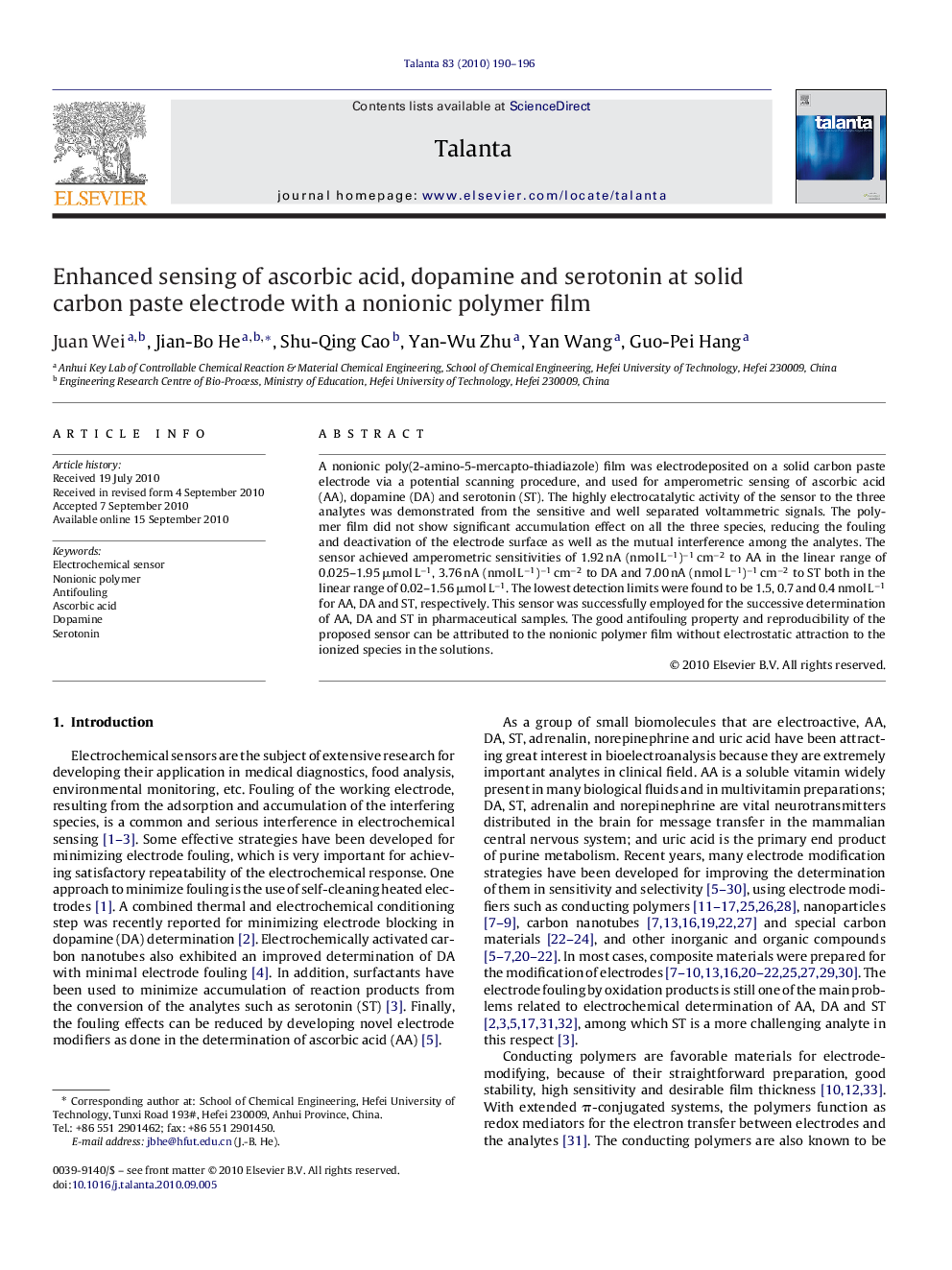| Article ID | Journal | Published Year | Pages | File Type |
|---|---|---|---|---|
| 1242480 | Talanta | 2010 | 7 Pages |
A nonionic poly(2-amino-5-mercapto-thiadiazole) film was electrodeposited on a solid carbon paste electrode via a potential scanning procedure, and used for amperometric sensing of ascorbic acid (AA), dopamine (DA) and serotonin (ST). The highly electrocatalytic activity of the sensor to the three analytes was demonstrated from the sensitive and well separated voltammetric signals. The polymer film did not show significant accumulation effect on all the three species, reducing the fouling and deactivation of the electrode surface as well as the mutual interference among the analytes. The sensor achieved amperometric sensitivities of 1.92 nA (nmol L−1)−1 cm−2 to AA in the linear range of 0.025–1.95 μmol L−1, 3.76 nA (nmol L−1)−1 cm−2 to DA and 7.00 nA (nmol L−1)−1 cm−2 to ST both in the linear range of 0.02–1.56 μmol L−1. The lowest detection limits were found to be 1.5, 0.7 and 0.4 nmol L−1 for AA, DA and ST, respectively. This sensor was successfully employed for the successive determination of AA, DA and ST in pharmaceutical samples. The good antifouling property and reproducibility of the proposed sensor can be attributed to the nonionic polymer film without electrostatic attraction to the ionized species in the solutions.
